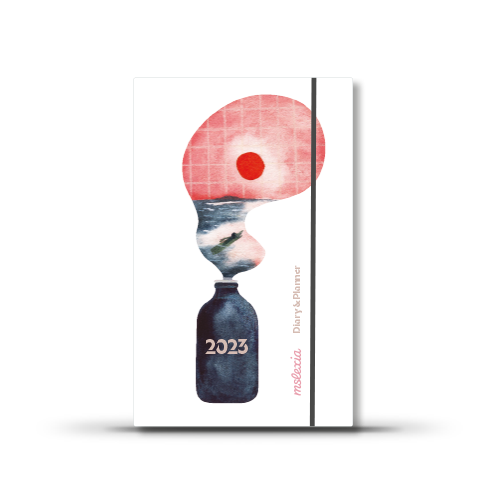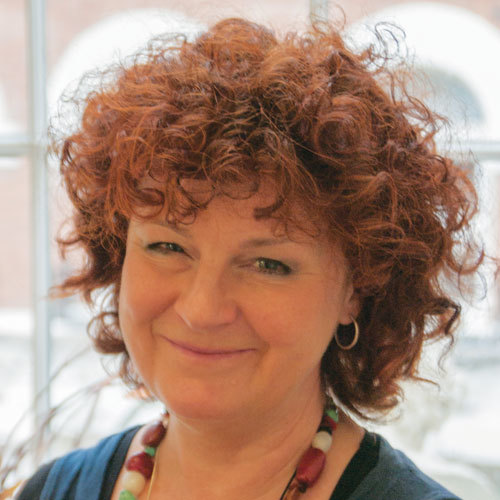
Affirmations are like magic spells that we cast on ourselves, that can increase our creativity and confidence in our writing. Editor Debbie Taylor provides a quick primer from the Creative Toolkit section in Mslexia’s new Writer’s Diary & Planner.
Affirmations are positive statements that are used to challenge negative beliefs that undermine our confidence and performance. They work in tandem with gratitudes (also explained in the Diary) to rewire the brain so that we can operate at an optimal level.
If you’ve dismissed the value of this kind of intervention in the past, please suspend your disbelief while you read this – because the power of affirmations to bolster motivation and self-esteem is grounded in decades of psychological research.
The original Self-Affirmation Theory was put forwards by C M Steele in 1988, who argued that humans create unconscious narratives about themselves, starting in early childhood, that influence how they feel and behave. These narratives are based on opinions they have heard from other people (‘she’s so clever’, ‘she’s so inarticulate’), combined with observations of their own behaviour (a good test result, an embarrassing conversation), which set up self-fulfilling feedback loops.
Affirmations replace the negative narratives that many of us develop about ourselves – ‘I can’t stick at anything’, ‘I tend to rub people up the wrong way’ – and replace them with more adaptive can-do narratives about our natures and what we can accomplish.
A host of scientific studies demonstrate the power of affirmations to enhance creativity, reduce stress, boost academic achievement, help problem-solving, maintain focus, diminish depressive ruminations, improve nutrition, increase physical exercise and bolster resilience. MRI scanning reveals that connections in the ventromedial prefrontal cortex, concerned with future-oriented values, are increased when people use affirmations. The practice both activates the brain’s reward system and calms its jittery alarm processes.
Affirmations can indeed work magic – and they only take a few minutes a day – but you need to do them properly. Here’s how:
- Focus on an aspect of your self-image or behaviour that you’d like to change, e.g., ‘I am a hopeless procrastinator and find it hard to settle down to my writing’. (This example is about writing, but affirmations will work for any aspect of your life.)
- Remember an instance when you have managed to overcome procrastination – whether applied to writing or another task. What happened? How did you feel? It’s important to ground your affirmation in reality, in what you already know to be true.
- Turn this true memory into a statement. For example: ‘I faffed around for two hours, but eventually managed 15 minutes of writing’. Or even: ‘I spent the whole afternoon writing then got a takeaway instead of cooking – and felt amazing’.
- Now turn your true memory into an affirmation by accentuating the positive, using it as an example of what you are capable of, and rephrasing it in the present tense. For example: ‘I can ignore distractions and focus on my writing’ or ‘It makes me happy to prioritise my writing’. Make sure you frame it as a positive. The unconscious can’t compute negatives and focuses only on the ‘meat’ of a statement. If you say, ‘I am not afraid of feedback’, your unconscious will ‘hear’, ‘I am afraid of feedback’.
- Speak your affirmation aloud and play around with the phrasing, until it sounds like something you might actually say. The more natural it sounds, the better it will stick.
- Decide on a regular time when you will repeat it as a mantra (for five minutes, two or three times a day, is recommended). Speaking to your reflection in the mirror, morning and evening, before you brush your teeth, works for many people.
- Piggy-backing affirmations on an existing habit helps embed them in your schedule. Facing the mirror reinforces what you’re saying, as though you’re hearing it from a friend.
That’s it – simple as that. A tried and tested way to get a handle on your unhelpful assumptions about yourself, and loosen their power over your life.
The Creative Toolkit in our new Writer’s Diary & Planner contains all the information you need to support your writing all year, based on established psychological research – including how-to briefings on habit tracking, morning pages and gratitudes, brain gym exercises to boost your cognitive functioning and mood, speedy writing prompts to rev up your little grey cells, and a wealth of hints and hacks to help you prioritise your writing time. It works as a normal diary too!


